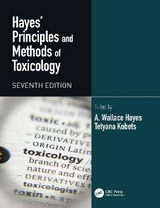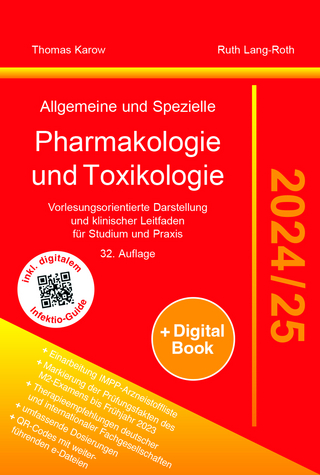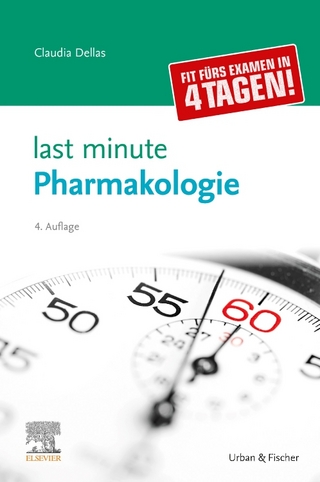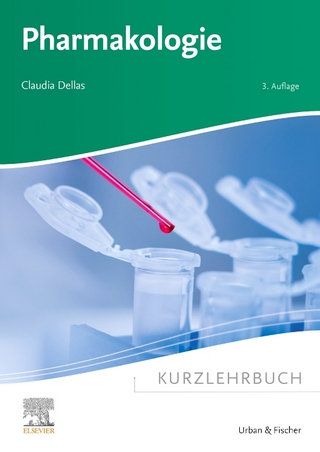
Hayes' Principles and Methods of Toxicology
CRC Press (Verlag)
978-1-84214-536-4 (ISBN)
- Titel erscheint in neuer Auflage
- Artikel merken
Hayes’ Principles and Methods of Toxicology has long been established as a reliable reference to the concepts, methodologies, and assessments integral to toxicology. The new sixth edition has been revised and updated while maintaining the same high standards that have made this volume a benchmark resource in the field. With new authors and new chapters that address the advances and developments since the fifth edition, the book presents everything toxicologists and students need to know to understand hazards and mechanisms of toxicity, enabling them to better assess risk.
The book begins with the four basic principles of toxicology—dose matters, people differ, everything transforms, and timing is crucial. The contributors discuss various agents of toxicity, including foodborne, solvents, crop protection chemicals, radiation, and plant and animal toxins. They examine various methods for defining and measuring toxicity in a host of areas, including genetics, carcinogenicity, toxicity in major body systems, and the environment. This new edition contains an expanded glossary reflecting significant changes in the field.
New topics in this edition include:
The importance of dose–response
Systems toxicology
Food safety
The humane use and care of animals
Neurotoxicology
The comprehensive coverage and clear writing style make this volume an invaluable text for students and a one-stop reference for professionals.
Dr. A. Wallace Hayes, a toxicologist with experience in industry and academics, has held Professorships at University of Alabama, University of Mississippi Medical Center and Wake Forest University School of Medicine and is Visiting Scientist at Harvard School of Public Health. He serves on the FDA Food Safety Committee. He has 230 plus peer reviewed publications, is editor for Human and Experimental Toxicology, Cutaneous and Ocular Toxicology, Target Organ Toxicity Series and Food and Chemical Toxicology. He is past Secretary-General of IUTOX, past treasurer of American Board of Toxicology (ABT), past president of the American College of Toxicology (ACT), Toxicology Education Foundation, and Academy of Toxicological Sciences (ATS) and past member of council of Society of Toxicology (SOT). He is a diplomate of ABT, ATS, American Board of Forensic Medicine and American Board of Forensic Examiners. He is a Fellow of ATS, Institute of Biology, American College of Forensic Examiners and American College of Nutrition. Dr. Hayes is European Union registered toxicologist and certified nutrition specialist. Dr. Hayes has been honored by SOT with its Merit Award, by Mid-Atlantic SOT with its Ambassador Award , by ACT with its Distinguished Scientist Award and by International Dose-Response Society with its Outstanding Leadership Award. Dr. Hayes was named Distinguished Fellow by ACT in 2013. Dr. Claire Kruger, PhD, DABT, CFS, currently serves as President of Spherix Consulting, Inc. She is an instructor at Harvard in Environmental Toxicology and Risk Management, as well as a guest lecturer at the University of Southern California and the University of Kentucky. Dr. Kruger served as the CEO of a NASDAQ listed pharmaceutical company, leading the development of drugs in the metabolic disease space. She also has more than 25 years of scientific and regulatory consulting experience in food ingredients and pharmaceuticals with over 80 publications and invited presentations. She serves as an Associate Editor of Food Chemical Toxicology, and is a member of the Society of Toxicology, the American College of Toxicology, the Institute of Food Technologists, and the American College of Nutrition.
Principles of Toxicology. The Wissenschaften of Toxicology: Harming and Helping through Time. Use of Toxicology in the Regulatory Process. Dose–Response: A Fundamental Concept in Toxicology. Metabolism: A Determinant of Toxicity. Toxicokinetics. Physiologically Based Pharmacokinetic and Toxicokinetic Models. Toxicopanomics: Applications of Genomics, Transcriptomics, Proteomics, and Lipidomics in Predictive Mechanistic Toxicology. Toxicologic Assessment of Pharmaceutical and Biotechnology Products. Statistics and Experimental Design for Toxicologists. Practice of Exposure Assessment. Epidemiology for Toxicologists. Principles of Pathology for Toxicology Studies. The Information Infrastructure of Toxicology. Agents. Food Safety and Foodborne Toxicants. Solvents and Industrial Hygiene. Crop Protection Chemicals: Mechanism of Action and Hazard Profiles. Metals. Radiation Toxicity. Plant and Animal Toxins. Methods. Humane Care and Use of Laboratory Animals in Toxicology Research. Validation and Regulatory Acceptance of Toxicological Testing Methods and Strategies. Acute Toxicity and Eye Irritancy. Genetic Toxicology. Short-Term, Subchronic, and Chronic Toxicology Studies. Carcinogenicity of Chemicals: Assessment and Human Extrapolation. Principles of Clinical Pathology for Toxicology Studies. Dermatotoxicology. Inhalation Toxicology. Detection and Evaluation of Chemically Induced Liver Injury. Principles and Methods for Renal Toxicology. Gastrointestinal Toxicology. Pathophysiology and Toxicology of the Heart. Neurotoxicology. Assessment of Male Reproductive Toxicity. Test Methods for Assessing Female Reproductive and Developmental Toxicology. Hormone Assays and Endocrine Function. Immunotoxicology: The Immune System Response to Toxic Insult. Assessment of Behavioral Toxicity. Organelles as Tools in Toxicology: In Vitro and In Vivo Approaches. Analysis and Characterization of Enzymes and Nucleic Acids Relevant to Toxicology. Modern Instrumental Methods for Studying Mechanisms of Toxicology. Methods in Environmental Toxicology. Glossary. Index.
| Erscheint lt. Verlag | 10.10.2014 |
|---|---|
| Zusatzinfo | 494 Tables, black and white; 824 Illustrations, black and white |
| Verlagsort | London |
| Sprache | englisch |
| Maße | 210 x 280 mm |
| Gewicht | 3180 g |
| Themenwelt | Studium ► 2. Studienabschnitt (Klinik) ► Pharmakologie / Toxikologie |
| ISBN-10 | 1-84214-536-3 / 1842145363 |
| ISBN-13 | 978-1-84214-536-4 / 9781842145364 |
| Zustand | Neuware |
| Haben Sie eine Frage zum Produkt? |
aus dem Bereich



